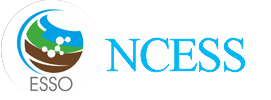
Modelling Laboratory (ML)
The Modelling Laboratory is equipped with the state-of-the-art software and computers (4 workstations) for numerical modelling work. The numerical modelling team is proficient in modelling of ocean waves and currents, coastal circulation, shoreline changes, coastal flooding and tsunami. The group uses the latest modelling software like 3DD and MIKE21 modelling suite of programs, LITPAK and Tsunami to predict and simulate waves, currents and wind conditions. In addition to this other software like GIS, ERDAS, MATLAB, SURFER etc are also being used at various stages of the work for data processing, analysis, interpretation, preparation of input data, comparison of satellite imageries and data presentation.
Models are calibrated and validated with the field data collected by the technical team. The deepwater bathymetry data required for the modeling work are taken from the latest available National Hydrographic Charts. For the nearshore region the latest bathymetry data measured and compiled by the survey team of MSD are being used. Since the nearshore bathymetry data is vital for the study of the nearshore wave climate and coastal circulation processes special care is being taken to use good quality data. For this the numerical modeling team works in close conjunction with the field team so that the numerical models set up are able to replicate the field conditions. The field observations and environmental data collected by the field team which include wind, waves, tides, current, sedimentological characteristics, beach profiles, visual observations etc are being extensively used by the modelers for giving inputs for running the model as well as for model calibration and validation.
The group is strengthening its modelling capabilities in the fields of wave transformation, oil spill modelling, coastal management, shoreline change studies etc. The lab also provides guidance and facilities for research students for both Master’s and Ph.D Degree students for doing their dissertation work. The students are given ample opportunities to broaden their knowledge base by interacting with other researchers and actively participating in training programmes, scientific discussions and talks which also includes brain storming sessions on particular topics conducted by the division and also by other research organizations




 RTI Act
RTI Act